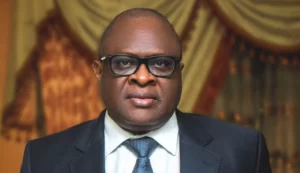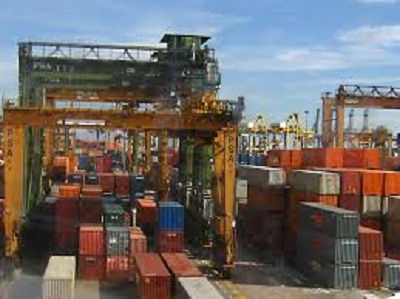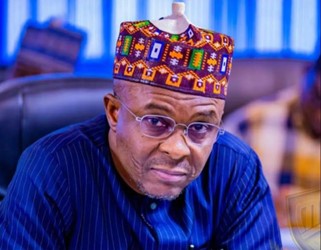
Mkpoikana Udoma
Port Harcourt — The conversation around the Blue Economy in Rivers State and the Niger Delta is unrealistic without first addressing the widespread environmental pollution and degradation caused by decades of oil exploration, an expert has warned.
President of Garden City Premier Business School and former Commissioner of Finance in Bayelsa Stateoner, Prof. Silva Opuala-Charles, said the Niger Delta region cannot genuinely pursue a blue economy when its waters were stained by oil spills and its marine life is devastated by pollution.
Prof. Opuala-Charles spoke in Port Harcourt on Monday at the 2025 Correspondents’ Week of the Nigeria Union of Journalists, Rivers State Council.
He said: “We say Blue Economy, but what is blue about our water? The waters are dark, oily, and toxic. The creeks are dead zones. Our fishermen bring back nothing but stories of hardship. Before we can talk about tapping into the ocean economy, we must clean up the mess first.”
Delivering a speech titled “Blue Economy: Starting Steps for Rivers State”, he cited United Nations data showing that 13 million barrels of oil have been spilled in over 7,000 incidents in the Niger Delta since 1958.
“You cannot talk of aquaculture when the fish stock is dead. You cannot speak of marine tourism when your waters reek of crude oil. We must tell ourselves the truth – this is not a blue economy, this is a red economy soaked in pollution,” he stated.
Prof. Opuala-Charles referenced a 2023 Reuters report which estimated that it would take $12 billion and 12 years to clean up the entire Niger Delta region. He said any government or agency speaking about the Blue Economy must first prioritize a comprehensive clean-up campaign, starting with the most affected riverine communities.
“We should not start with policy documents and media launches. We must start with a mop. Clean the rivers, clean the creeks, restore the mangroves, then talk about growth,” he emphasized.
He also criticized the absence of a tailored Blue Economy policy framework for Rivers State, warning that relying on federal policies alone will sideline the peculiar environmental and socio-economic needs of the region.
“Where is the policy? Where is the structure? Where is the funding plan? A Blue Economy agenda must not be a cut-and-paste from the federal level. We need a Rivers-specific approach that puts clean-up and restoration at the center,” he said.
In terms of potential, Prof. Opuala-Charles acknowledged that Rivers State is richly endowed with vast inland waterways, untapped marine biodiversity, and aquaculture potential, but stressed that environmental neglect continues to cripple economic opportunities.
He proposed that the Rivers state government should launch a State Blue Economy Council involving stakeholders from oil host communities, academia, private sector, and civil society.
“Prioritize aquaculture training and investment for young people in coastal areas; Develop a sustainable marine transportation master plan; Allocate budgetary provisions to environmental remediation and coastal protection; and lobby for international funding to support clean-up projects in areas affected by oil spills.
“Let us move from dependency on dirty energy to sustainable economic alternatives. But let’s not pretend. There is no blue economy without a green environment. No fish can thrive in poisoned waters. No investor will build a resort on a polluted shoreline. The first step is clean-up,” he concluded to huge applause from journalists and media executives present.
He further took aim at the lack of a defined Blue Economy policy for Rivers State, warning that vague talk without concrete action plans and a clearcut structure would only create more confusion.
“Rivers State cannot afford to piggyback on federal documents that do not address our unique environmental damage. We need a locally tailored strategy – one that puts cleanup, coastal protection, and community participation at the center,” he said.
Prof. Opuala-Charles recommended that the state urgently establish a Rivers State Blue Economy Council made up of representatives from riverine communities, academia, private sector experts, and civil society groups. The Council, he said, should oversee all activities tied to the Blue Economy, from budgeting to monitoring and accountability.
He also called for direct investments in sustainable aquaculture, training of youths in marine-based enterprises, revival of the artisanal fishing industry, and a state-wide campaign to restore degraded creeks and wetlands.
“Rivers State has the potential to be the aquaculture hub of West Africa. We have the coastline, the population, and the maritime culture. But we have failed to leverage that because we have ignored the environment. If you kill your ocean, you kill your economy,” he warned.
The Correspondents’ Week opening ceremony was attended by top media executives, academics, experts, government officials, and civil society stakeholders.



